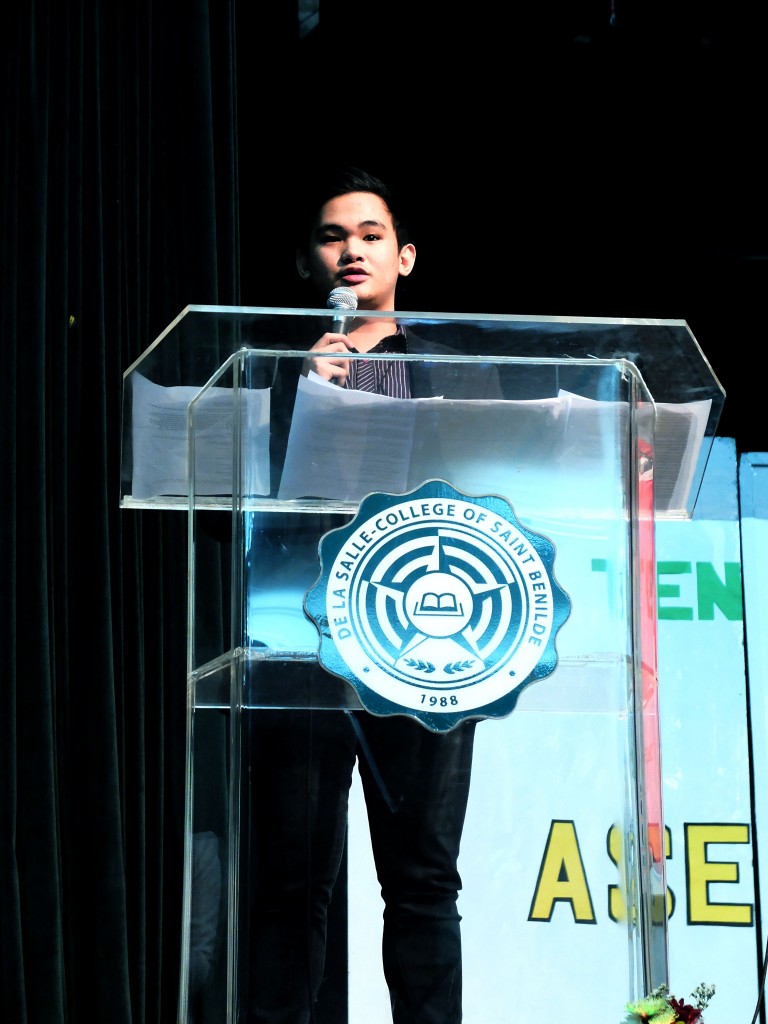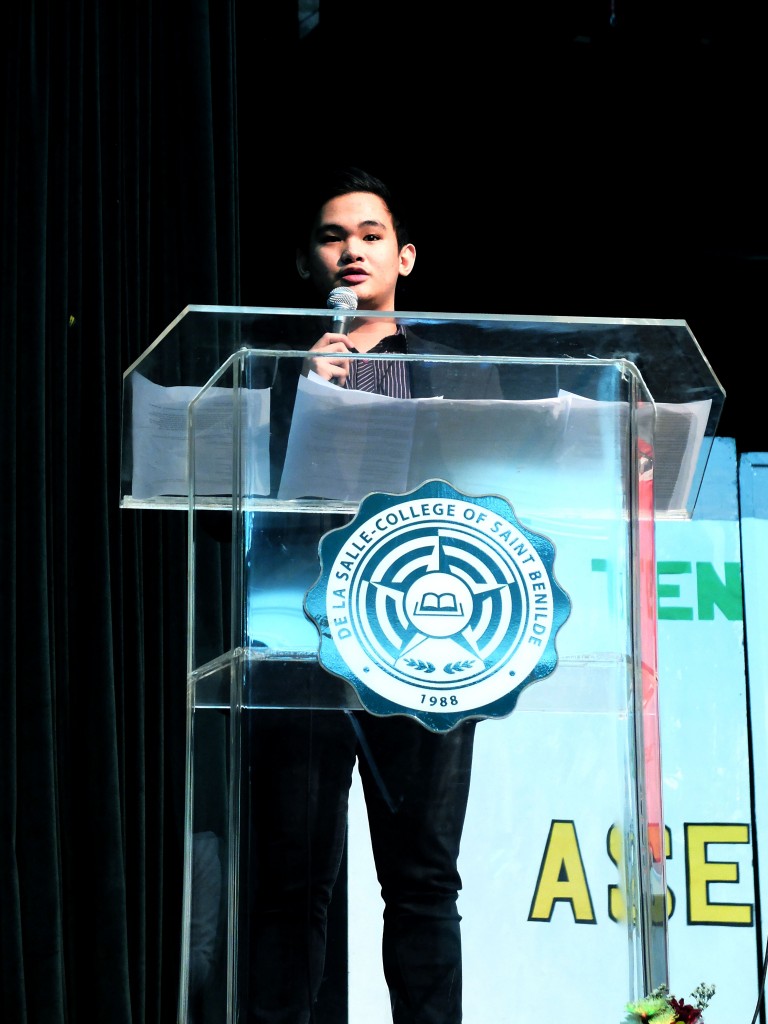Benildean community were exposed to the issues concerning Transition Term and Association of Southeast Asian Nations (ASEAN) Integration through a talk organized by Human Resource Management Society (HRMS) at the Augusto Rosario-Gonzales (ARG) Theater last February 18.



DLS-CSB administrators Vice Chancellor for Academics Mr. Robert Tang, School of Multidisciplinary Studies (SMS) Dean Mr. George Binay, and Chairperson of Consular and Diplomatic Affairs (CDA) Program Mr. Gary Ador Dionisio, spoke regarding the the above-mentioned topics. The discussion was divided into two categories: the external implications of mobility and globalization and the internal implications with regard to education and the calendar shift.
Talk on mobility
According to Mr. Binay, the integration would focus on the services that would become eventually available to the region including education, in that, exchanges of students and faculty between countries would be more feasible since the integration would facilitate hosting of international scholars more easily. Thus, studies and curriculums would be more “international” as changes in the profile of students take place.
“In my view, mobility poses a lot of interesting opportunities for us,” he said. “Mobility would be both an opportunity [and] a challenging situation, but [it] creates challenging opportunities.”
Mr. Tang also mentioned that the integration will include the National Certification (NC) I and II that are given to those who finish Kinder to Grade 10 and Grade 11 to 12, respectively. Revisions on some programs, like the BS-Hotel, Restaurant, and Institution Management (BS-HRIM), would be taking place to better respond to the integration. The ASEAN Mutual Recognition Agreement (MRA), which includes over 200 competencies for professional work, would be integrated into the subjects taken on the said course. The application of the proposed arrangement among ASEAN member countries is designed to facilitate the free movement and employment of qualified and certified personnel between ASEAN member countries.
Another Benildean program that would undergo some changes is the BS-Architecture–a course in the country that is rated NC6 compared to Singapore’s NC8. Mr. Tang mentioned their plan of sending representatives from the Architecture program to the National University of Singapore to look into their curriculum and the possible upgrades on the competency skill set we can undertake for the program to move to a higher level.
Meanwhile, Mr. Tang mentions the security changes that would be taking place on its diplomas and transcripts issuances because of forging issues. He also mentioned that the DLS-CSB diploma is recognized by Ministry of Manpower in Singapore which gives its graduates opportunities to work there. The said features and opportunities given by the document would now be accessible in Malaysia.
“What we would like is that students of the College are also given the opportunity to get exposed abroad,” Mr. Tang said. “The best way to acquire the skill is really to be in the environment, and not inside the classroom just reading things or textbooks.”
ASEAN and Benilde
For Mr. Tang, DLS-CSB has the advantage of practicality in solving “real world problems” because, according to him, the College does not emphasize on theory alone, but more so on the application and practical side of things. He gave as an example the Competency-based Backward Design curriculum model that Benilde uses, as well as the 10 specific soft skills that are being imparted to students regardless of specializations and year levels, namely: teamwork, communication, information technology knowledge, goal setting and planning, problem solving, among others.
There will be developments on the curriculum such as limiting the general subjects to 36 units or 12 subjects and adding subjects such as ASEAN Studies intended to promote awareness regarding ASEAN. The syllabus of the said subject is now being developed by the CDA program and will be taught by ambassadors, ultimately making it an interdisciplinary course.
“Education is gearing towards being interdisciplinary, it’s now more holistic and transnational,” added Mr. Binay stressing that access or exposure to other countries such as immersions for the exercise or training of skill sets acquired will prove to be more advantageous and helpful for students.
Photo by Cyrill Araga


